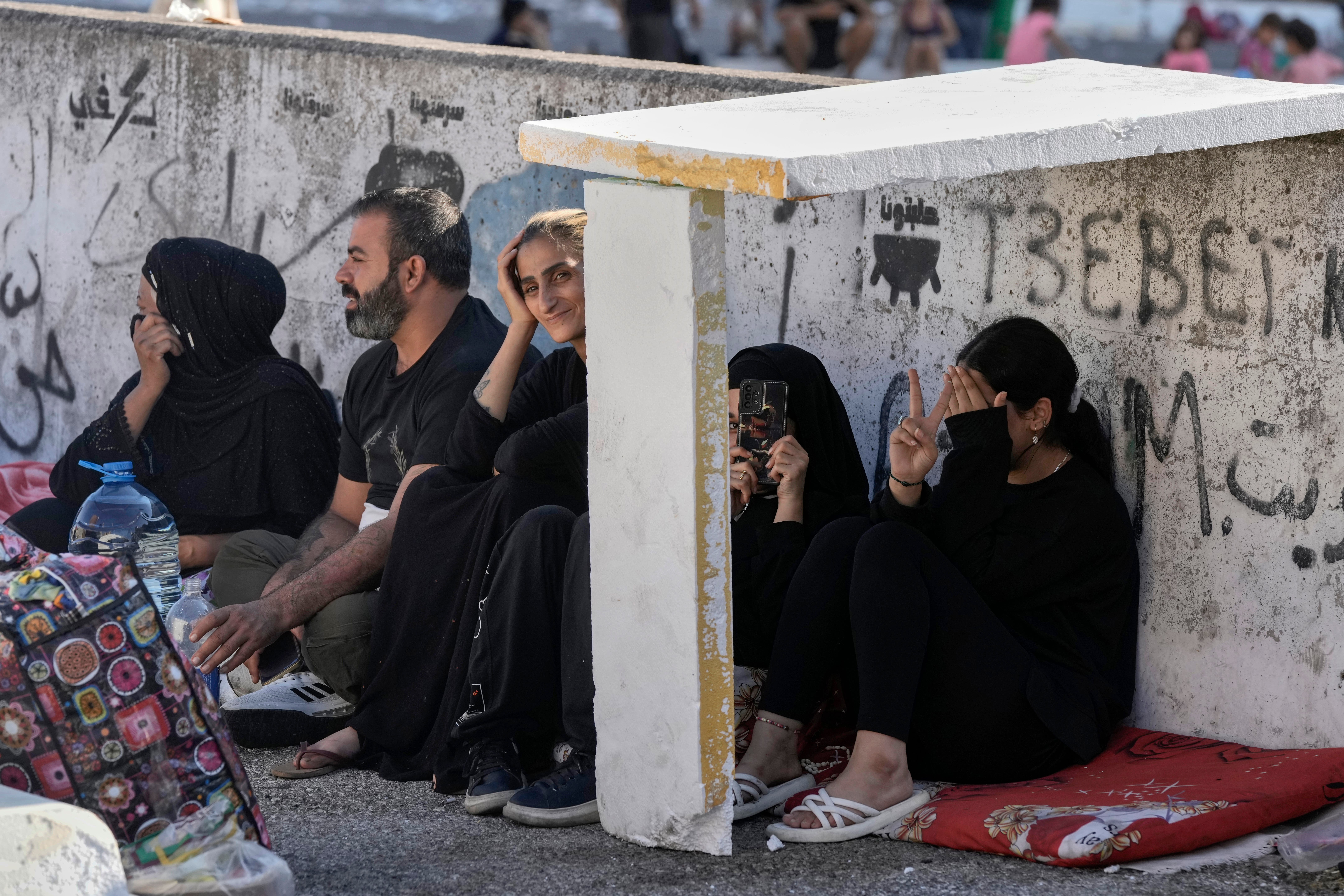Lebanon faces humanitarian ‘catastrophe’ as Britons urged to leave
Airstrikes overnight have further dampened hopes of a ceasefire in the region and raised concerns that a regional war could break out.

Your support helps us to tell the story
From reproductive rights to climate change to Big Tech, The Independent is on the ground when the story is developing. Whether it's investigating the financials of Elon Musk's pro-Trump PAC or producing our latest documentary, 'The A Word', which shines a light on the American women fighting for reproductive rights, we know how important it is to parse out the facts from the messaging.
At such a critical moment in US history, we need reporters on the ground. Your donation allows us to keep sending journalists to speak to both sides of the story.
The Independent is trusted by Americans across the entire political spectrum. And unlike many other quality news outlets, we choose not to lock Americans out of our reporting and analysis with paywalls. We believe quality journalism should be available to everyone, paid for by those who can afford it.
Your support makes all the difference.Britons have been urged to leave Lebanon amid warnings the country faces a humanitarian “catastrophe” following the latest round of Israeli air strikes.
On Friday, the Foreign Office warned that British nationals should “leave now” as series of massive explosions levelled multiple apartment buildings in Beirut.
In a statement, the Foreign Office said it was “working to increase capacity” and secure seats for British nationals on flights out of the country.
Friday’s strikes have been reported to be an attempt to kill Hassan Nasrallah, the leader of Lebanese militant group Hezbollah, and were followed by further strikes on southern Beirut overnight, prompting civilians to move north in an effort to find safety.
On Saturday, the Israeli government said it had killed Ms Nasrallah, with the Israeli Defence Forces posting on X, formerly Twitter, he would “no longer be able to terrorise the world”.
Ettie Higgins, Unicef’s deputy representative in Lebanon, said “thousands and thousands” of people had fled southern Beirut, while hospitals were “overwhelmed” and water pumping stations had been destroyed.
She told the BBC’s Today programme: “Even the most basic essential services of healthcare and water are now being rapidly, rapidly depleted.
“There was already a humanitarian crisis in Lebanon given that it’s been hosting over 1 million refugees from Syria for over a decade, so it’s rapidly escalating into a catastrophe.”
She added that 50 children had already been killed, and said she expected that figure to rise as the air strikes continued.
Israel has insisted the air strikes have targeted Hezbollah military installations or senior figures, with Friday’s attack said to have targeted the main Hezbollah headquarters.
The latest round of strikes will have further dampened hopes of an international ceasefire in the region, coming shortly after Israeli prime minister Benjamin Netanyahu promised his country’s campaign against Hezbollah would continue during an address to the UN.
Western governments have expressed concern that the intensified conflict between Israel and Iran-backed Hezbollah could trigger a wider regional war, with figures including Sir Keir Starmer and US President Joe Biden calling for a ceasefire.
In his own address to the UN on Thursday, the Prime Minister said: “I call on Israel and Hezbollah. Stop the violence. Step back from the brink.
“We need to see an immediate ceasefire to provide space for a diplomatic settlement and we are working with all partners to that end.”
The PA news agency understands the UK Government has successfully asked airlines to increase capacity on routes out of Lebanon, with Foreign Office teams in Beirut to support British consulate services.
It is thought they are ready to facilitate evacuations by sea or air, which could be triggered if the security environment degrades further and British nationals are no longer able to leave the Middle East through other routes.
Around 5,000 British citizens are in Lebanon, and the United Nations said 118,000 Lebanese people have been displaced in recent days.